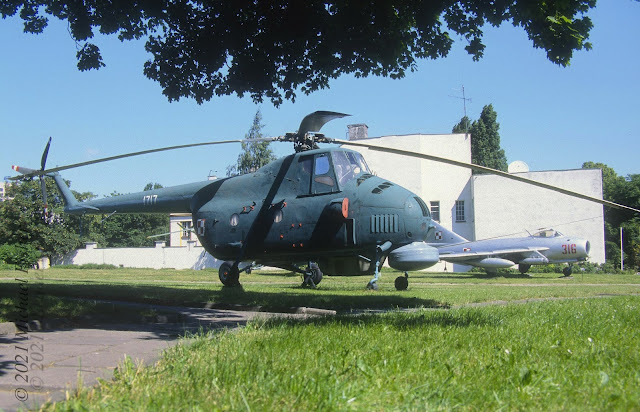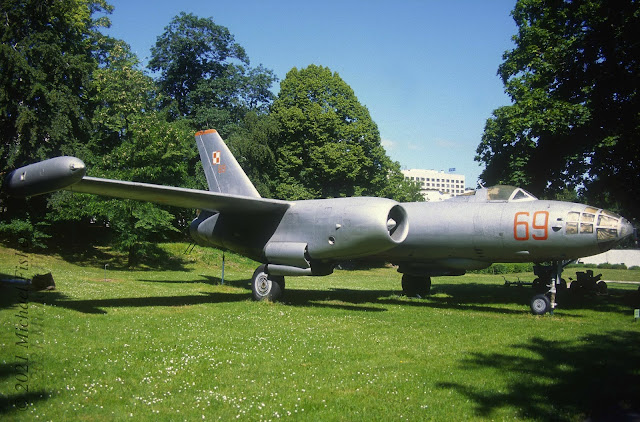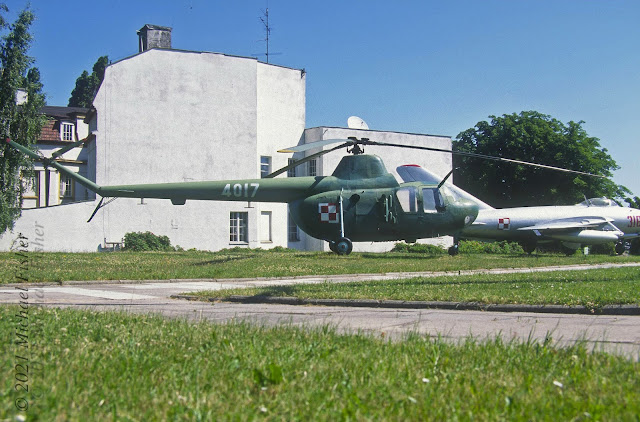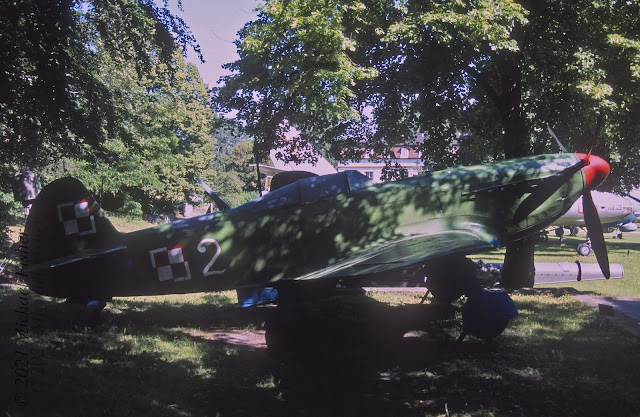A short walk along the seafront promenade at Gdynia, passing the beach bars and restaurants all sitting on the sand and looking out across the blue Baltic Sea, brings you to what in 1995 was a lovely treat: the Polish Navy Aviation Museum. If you arrive before the museum opens, as I did, I recommend enjoying a local beer with fabulous views of the Hel Peninsula in the distance while sitting on the beach, "Cheers."
Back in 1995, four aircraft were exhibited in the museum's garden; I can see that today, at least two more aircraft have joined them. Fortunately for me, both these new arrivals, a MiG-21 and a TS-11, were still flying at the Babie Doly airshow in 1995.
Its manoeuvrability was perfect in low-altitude assault missions, outclassing the MiG-21 and
SU-7s.
The PZL-Lim-6 BIS varied slightly from its predecessor, the
Lim-5, and carried underwing pylons, seen here embellished with the Polish-made
Mars-2 rocket launchers, capable of discharging 16 unguided
57mm rockets. It was also fitted with a new braking parachute housing under the rudder, as seen in the top photograph.
1717 Mil Mi-4 NATO calling the name "
Hound B."
Fitted with the searching radar station
SPRS-1 ("
KURS-M"), the hydroacoustic station "
BAKU."
Behind the radar, an additional fuel tank and a rescue boat were provided in the gun turret.
NATO called the name "
Beagle".
4028 PZL-Swidnik SM-2 (cn S1-04017), a License
Mil Mi-1, NATO calling "
Hare", with its enlarged cockpit to allow one pilot and four passengers. It was operated as a light utility helicopter, also in the
SAR role.
The Yak-9 held the title of the
Soviet Union's most mass-produced aircraft, produced from 1942 to 1948, with a total of 17,000 aircraft constructed.
Overall, it is highly recommended, and the local
Polish beer is excellent.






